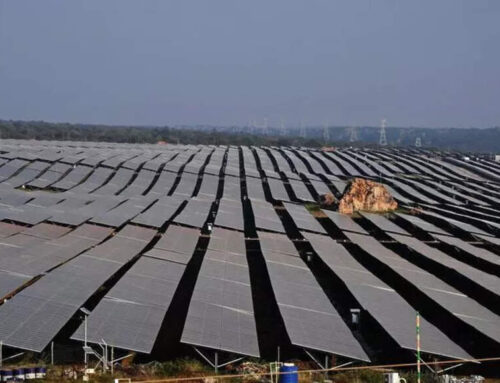Guest column: Carbon capture could have a big impact on property owners. Here’s how.
June 20, 2025
The carbon-capture-and-storage industry continued its Louisiana conquest this legislative session. Billed as a way to fight climate change and boost the state economy, lawmakers in both parties fought off efforts to ban such operations or to even allow local control over the planning.
Opponents of carbon capture voice several concerns, namely the minimal impact on the state carbon footprint, the industry’s reliance on federal subsidies and potential threats to local communities’ health and safety.
The industry plan is to inject concentrated carbon waste into depleted oil reservoirs or other underground formations and keep it there forever. But scientists say this can’t be guaranteed. By nature, carbon seeks vertical escape, and its movement can cause seismic shift, release arsenic and lead into water and, in large enough quantities, cause asphyxiation.
As professors of property law, we see one threat the Legislature failed to adequately address: that carbon-capture technology will erode Louisianians’ traditional property rights.
Within limits, property owners have the right to be free from unwanted intrusions, to decide whether to keep or sell their land and to seek compensation from those who degrade their resources. With carbon capture, these rights are being renegotiated.
Let’s start with an intrusion, otherwise known as trespass.
Imagine a plume of pressurized carbon waste escapes from an underground reservoir and migrates into the mineral layers below your land, where it causes lead and arsenic to leach into your crawfish pond or causes shifts in the foundation of your home. Is this a trespass? We don’t know. In Louisiana, and in many other states, the law against trespass is unsettled where carbon is concerned.
Now consider an owner’s right to keep or sell. Generally, the law protects us from being forced to sell or lease our property to another private party. There are exceptions. Louisiana allows private utilities, within certain limits, to take private land (with compensation) for the purpose of building transmission cables or pipelines. We justify this because the infrastructure provides a product to the public at-large (electricity, natural gas).
The state Legislature earlier expanded this process to include carbon-capture pipelines. Unlike utilities, these pipeline are part of a private industry’s waste disposal system. Why should individual landowners subsidize that?
Finally, consider the possibility of an accident — an explosion, an earth tremor, a massive leak — that hurts nearby property owners or the public more generally. Tort law generally holds a property owner liable for damage caused to neighboring properties or to other people due to their negligent or reckless activities.
But carbon capture legislation has altered this arrangement as well. Louisiana law holds the carbon-capture company liable only for the first 50 years and only as to certain kinds of damage. After that, all liability is assumed by the state.
The 2025 legislative session saw several attempts, and failures, to address these concerns. Bills aimed at giving parish authorities autonomy over carbon capture permits did not make it out of committee. House Bill 691, which requires reporting of carbon capture failures, has been sent to the governor, but House Bill 696, which would have created greater protections for safety and drinking water monitoring, failed.
As Louisianians, we know from experience the damage to our land and health that hydrocarbon exploration has caused. It’s up to us to stand up for our health, our environment and our property, and after this legislative session there is more work to do.
Search
RECENT PRESS RELEASES
Related Post




